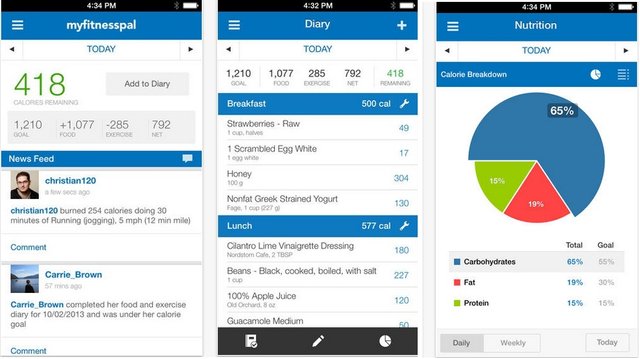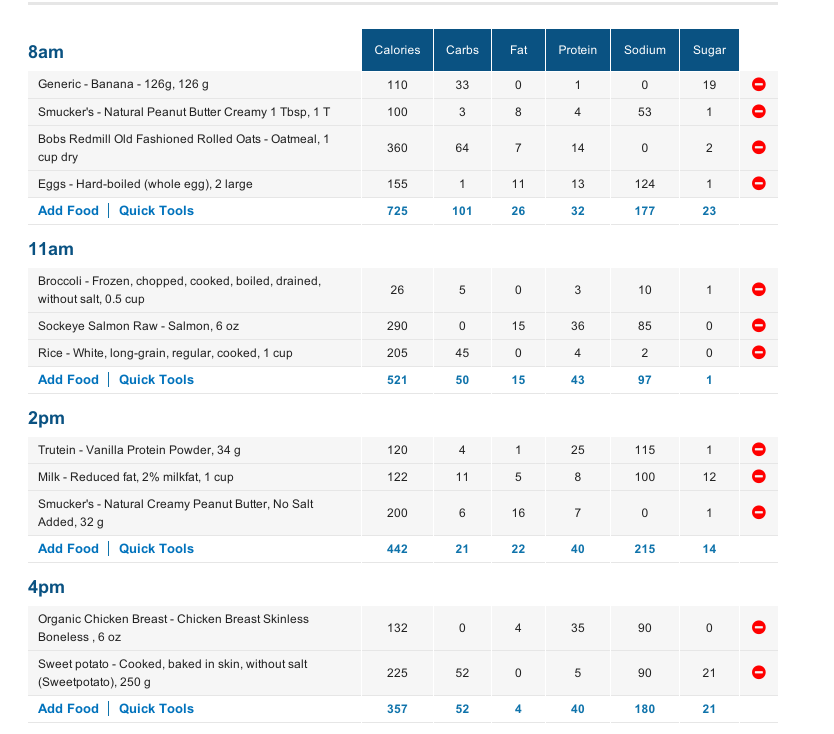Basic knowledge and terms:
What are Calories? : By definition, it is the energy needed to raise the temperature of 1 gram of water through 1 °C, in Lameman’s terms it is what fuels are everyday actions. Calorie and Energy will be used interchangeably in this article.
What is TDEE? : It stands for Total Daily Energy Expenditure, meaning the total calories you burn in a day. This is also your maintenance calories (The number of calories you need to maintain your weight)
What is NEAT? : It stands for Non-Exercise Activity Thermogenesis, meaning the number of calories you burn doing things like twiddling your thumbs, thinking about things and tapping your fingers on your desk.
Basal Metabolic Rate (BMR):This is how many calories your body uses to keep vital functions going. Ex. If you BMR is 2000 calories you could lie down on your bed for the entire day and you would still burn those 2000 calories.
Macronutrients: We have three macronutrients, Protein, Fats, and Carbohydrates (I may use abbreviations such as “prot” for Protein and “carbs” for Carbohydrates.) They all are needed and all service unique function in the body, but that’s not in the scope of this post. (I’ll probably go more in depth in later posts)
Micronutrients: These are nutrients that are essential but we need in much smaller quantities, hence their name “micro”nutrients. Those nutrients are all the Vitamins and Minerals.
Calorie Surplus: Eating MORE than the number of calories you burn in a day,
Ex. Your BMR is 2500 calories, you want to gain 1 pound per week so you eating 3000 calories (One pound of fat=3500 calories, so eating in a 500 calorie surplus times 7 days in a week equals 3500 calories which is one pound of fat)
Calorie Deficit: Eating LESS than the number of calories you burn in a day,
Ex. Your BMR is 2500 calories, you want to lose 1 pound of fat per week so you eat 2000 calories (One pound of fat=3500 calories, so eating in a 500 calorie deficit times 7 days in a week equals 3500 calories which is a pound of fat)
Methods of Eating:
How you eat should depend on what your goal is, want to lose weight? Eat in a calorie deficit and over time progressively lose weight. Want to build muscle/gain weight? Eat in a calorie surplus and weight train. Want to maintain your weight? Eat at your maintenance calories or do different styles of recompositioning like eating a bit less on days you don’t train and more on those you train. In this post I’ll be going over four eating methods, Calorie Counting, Macronutrient Counting, Food/Meal planning, and Mindset/Philosophy.
Calorie Counting:
With this method, you must determine your TDEE and track your food either on a phone app or write it down somewhere. Sustainability-wise, this method is probably the 2nd best one to choose. When you choose to track your have some wiggle room to have foods that generally aren’t considered healthy, for example if your TDEE is 3000 calories (This is around the average TDEE for an adult male who lifts weights) you can eat 2500 or so of ‘clean’ or healthier foods then the remaining 500 you can indulge a bit. At the end of the day all that really matters is total calories in and total calories out (i.e. the law of thermodynamics) so if you indulge a bit it won’t hurt you and it will probably make this style of eating more sustainable for you.
.jpg)
Macro Counting:
With this method, you must determine your TDEE, choose a macronutrient split, and track your food on a phone app like MyFitnessPal (You could write it down too but that would be a pain). Sustainability-wise, this method is probably the least sustainable but the most effective. If you do it properly there is no chance that you don’t reach your goal because you are literally controlling all the variables. The most popular macronutrient split is 40% Carbohydrate, 30% Fat, and 30% Protein, so if my TDEE is 3000 calories my macros would be 300g of Carbs, 225g of Protein, and 100g of fat. This method is also called ‘Flexible Dieting’ or ‘IIFYM’ (If it fits your macros), meaning you can literally eat ANYTHING if it fits into your macros, for example, if I wanted to lose weight and I was eating 2500 calories I could be getting all my fats and carbs from pop tarts and if I stayed under my caloric goal and hit my protein goal I would still lose weight. But this plan isn’t foolproof, if you go all out if the IIFYM your health will take a hit so I recommend if you want to do this method do a flexible style, meaning you eat 80%~ clean foods and around 20%~ foods you wouldn’t normally eat.

Food/Meal Planning:
This method is similar to Macro counting but instead of having your phone and tracking the foods as you eat them you preplan a specific regiment of foods you will be eating every day and changing the plan every couple weeks. To do this method you need to get on a macro counting service, like MyFitnessPal, set up your calories, macros, meals and finally print and follow the plan. Sustainability wise this isn’t the best but are optimal for fat loss plans.

Mindset/Philosophy:
This method is probably what will concern 80% of you guys since most of you probably aren’t in much of a rush to change your body or just want to become generally healthier without going to extremes. With this method, you must pick an eating philosophy or style that you both enjoy and can stick to. For example, let’s say you choose a Mediterranean style of eating and after a bit of research you conclude that this style of eating is mostly based around complex carbohydrates, fruits, vegetables and healthy fats with limited animal protein. Now with this knowledge, you slowly start changing your eating habits and over time you learn more about your body and how to manipulate things such as your weight.
.jpg)
This is just one of many articles to come on topics such as Health, Nutrition and Training so follow me if you like what you see.
Nice health related post. It described details about one of the important thing in being healthy. During student life I had to memorized the definitions. After long time saw the definitions here.
Thanks for sharing it with us.
Downvoting a post can decrease pending rewards and make it less visible. Common reasons:
Submit